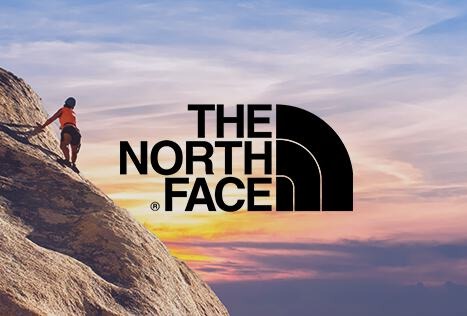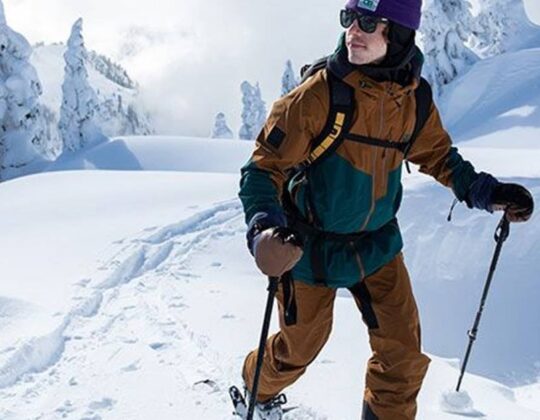Patagonia, a brand synonymous with both environmental activism and high-performance outdoor gear, stands as a pioneer in the realm of sustainable and ethically produced clothing. Founded in 1973 by Yvon Chouinard, the company’s ethos revolves around a deep commitment to the planet, reflected not only in its innovative products but also in its trailblazing approach to corporate responsibility. In this review, we delve into the multifaceted world of Patagonia, exploring its sustainable practices, its iconic products, and its unwavering dedication to making a positive impact on the environment.
A Commitment to Sustainability:
At the heart of Patagonia’s identity is an unyielding commitment to sustainability. The brand has been at the forefront of environmental consciousness, setting benchmarks for ethical manufacturing, responsible sourcing, and transparency.
- Organic Cotton and Recycled Materials:
- Patagonia prioritizes the use of organic cotton and recycled materials in its clothing, reducing the environmental impact of its products.
- The brand actively seeks alternatives to virgin materials, contributing to a more circular and sustainable fashion industry.
- Worn Wear Program:
- The Worn Wear initiative promotes a culture of reuse by encouraging customers to trade in their used Patagonia gear for store credit.
- This program extends the life cycle of products and aligns with the brand’s commitment to reducing waste.
- Fair Trade Certification:
- Many of Patagonia’s products carry Fair Trade Certification, ensuring that workers involved in the manufacturing process are treated ethically and paid fair wages.
- This commitment reflects a dedication to fostering social responsibility in the supply chain.
Iconic Products and Technical Innovation:
Patagonia’s product lineup is renowned for its technical innovation, durability, and versatility. From classic outerwear to specialized gear, each piece is a testament to the brand’s dedication to providing high-performance products for outdoor enthusiasts.
- Nano Puff Jacket:
- The Nano Puff Jacket is a hallmark of Patagonia’s technical expertise, offering lightweight yet effective insulation.
- Utilizing PrimaLoft technology, it provides warmth even when wet, making it an essential piece for various outdoor activities.
- Torrentshell Rain Jacket:
- The Torrentshell Rain Jacket exemplifies Patagonia’s commitment to environmental responsibility, featuring a recycled nylon shell.
- Its H2No Performance Standard ensures waterproof protection, making it a reliable choice for unpredictable weather conditions.
- Synchilla Fleece Pullover:
- The Synchilla Fleece Pullover has achieved iconic status, combining warmth, comfort, and a timeless aesthetic.
- Its recycled polyester construction aligns with Patagonia’s mission to reduce environmental impact.
Advocacy for Environmental Causes:
Beyond crafting sustainable products, Patagonia distinguishes itself by actively engaging in environmental advocacy. The brand leverages its influence and resources to address critical environmental issues, amplifying its impact beyond the outdoor gear market.
- 1% for the Planet:
- Patagonia is a founding member of 1% for the Planet, pledging 1% of sales to support environmental organizations.
- This initiative has resulted in millions of dollars directed toward conservation and climate action.
- Environmental Campaigns:
- Patagonia engages in high-profile environmental campaigns, using its platform to raise awareness and advocate for the protection of natural spaces.
- The brand’s commitment to issues like climate change and public lands underscores its role as a catalyst for positive change.
Transparency and Corporate Responsibility:
Patagonia’s approach to corporate responsibility goes beyond marketing rhetoric, with the brand actively striving for transparency and accountability.
- Footprint Chronicles:
- The Footprint Chronicles, an online platform, provides customers with insights into the environmental and social impact of Patagonia’s products.
- This transparency fosters a sense of trust and allows consumers to make informed choices aligned with their values.
- Challenging Consumerism:
- Patagonia challenges the prevailing culture of consumerism with initiatives like the “Don’t Buy This Jacket” campaign.
- By encouraging thoughtful consumption, the brand promotes a shift toward a more sustainable and mindful approach to clothing.
Challenges and Criticisms:
While widely acclaimed for its ethical practices, Patagonia is not without its challenges and criticisms. Some critics argue that the brand’s higher price points may limit accessibility for a broader demographic, potentially relegating sustainability to a niche market. Additionally, the tension between promoting environmentalism and being part of a consumer-driven industry raises questions about the efficacy of sustainable practices within the current economic system.
Customer Loyalty and Advocacy:
Patagonia’s success extends beyond the realm of outdoor gear; it is deeply intertwined with a loyal customer base that resonates with the brand’s values. Patagonia’s customers often become advocates for environmental causes, aligning with the brand’s mission and contributing to a community of like-minded individuals.
- Brand Loyalty:
- Customers who invest in Patagonia products often remain loyal to the brand, recognizing the long-term value of durable, high-quality gear.
- The longevity of products and the Worn Wear program further foster brand loyalty.
- Community Engagement:
- Patagonia’s engagement with local communities and grassroots environmental organizations resonates with customers seeking a brand with a genuine commitment to positive change.
- The brand’s advocacy work invites customers to be active participants in environmental initiatives.
Conclusion:
Patagonia has transcended the traditional boundaries of an outdoor gear brand, evolving into a symbol of ethical business practices, environmental advocacy, and technical innovation. Its unwavering commitment to sustainability, transparency, and responsible manufacturing sets a benchmark for the industry. Beyond crafting high-performance gear, Patagonia challenges the status quo, encouraging consumers to question the impact of their choices on the planet. As a beacon of conscious consumerism, Patagonia not only equips adventurers for the great outdoors but also inspires a movement toward a more sustainable and mindful approach to living.











